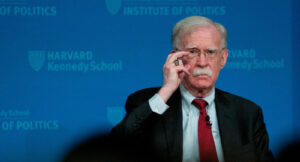
U.S. District Judge Theodore Chuang, appointed by former President Barack Obama and based in Greenbelt, Md., has again emerged as a key figure in the ongoing tension between the executive and judicial branches, a dispute that has only deepened since Donald Trump’s rise to national politics.
Chuang gained national attention in 2017 when he issued a nationwide injunction blocking the Trump administration’s second travel ban, which sought to limit entry from six majority-Muslim countries.
In his ruling, Chuang said the government’s action could not be separated from Trump’s previous campaign statements, writing that a “reasonable observer” could view the order as driven by anti-Muslim sentiment.
“Simply because a decision-maker made the statements during a campaign does not wipe them from the ‘reasonable memory’ of a ‘reasonable observer,’” he wrote.
The interpretation that linked campaign statements to official actions was criticized by conservatives as extreme judicial activism.
The ruling set the stage for a series of legal challenges that would confront the Trump administration over the following four years. Chuang’s influence extended beyond immigration policy, as he later oversaw cases involving the U.S. Agency for International Development (USAID) and other executive branch initiatives.